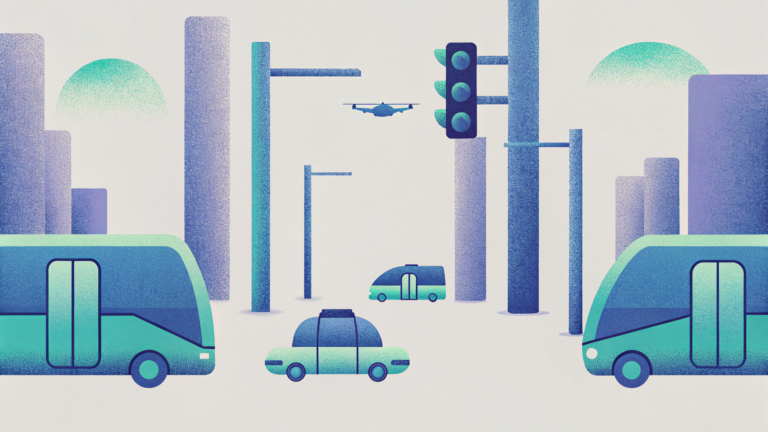DeHaat: How this Bihar Startup is Cultivating a Billion-Dollar Agritech Revolution

DeHaat is a leading Indian agritech company revolutionizing the agricultural sector with technology-driven solutions. Established in 2012 by IIT alumnus including Shashank Kumar, Shyam Sundar, Amrendra Singh, Adarsh Srivastava, and Abhishek Dokania — DeHaat was born from a shared mission to transform the lives of Indian farmers through innovation and accessibility. (Dehaat)
Headquartered in Patna, Bihar, DeHaat operates as a comprehensive business-to-farmer (B2F) platform, seamlessly connecting farmers with quality agricultural inputs, personalized crop advisory services, financial products, and market linkages. Addressing critical challenges like limited access to modern resources and fragmented supply chains, DeHaat aims to empower farmers to maximize productivity and profitability.
What does DeHaat do?
The company’s founding journey is deeply rooted in grassroots engagement. The founding team spent years immersing themselves in the farming communities of Bihar to understand their needs firsthand. They identified how agricultural technology solutions could bridge systemic gaps and uplift rural livelihoods.
Today, DeHaat stands as a fully integrated farmer services platform, offering end-to-end agricultural support. Through its ICT-driven model and an expanding network of micro-entrepreneurs, DeHaat distributes high-quality seeds, fertilizers, pesticides, cattle feed, and farm machinery while delivering AI-based farm advisories and facilitating produce sales. By leveraging digital technology, DeHaat not only improves farm productivity but also fosters rural entrepreneurship and sustainable agriculture practices.
The DeHaat Origin Story: From IIT Dreams to Farming Fields
DeHaat was born from a simple but powerful idea — to make farming easier and more rewarding for millions of Indian farmers. Behind this idea were five passionate individuals: Shashank Kumar, Shyam Sundar Singh, Amrendra Singh, Adarsh Srivastava, and Abhishek Dokania — each bringing their own experiences, dreams, and determination to the table.
Shashank Kumar, an alumnus of IIT Delhi, started his career at Microsoft, where he built strong foundations in technology and problem-solving. But his heart was always drawn to the fields of rural India. He believed that the power of technology should not be limited to cities — it should reach the farms and villages where it could truly transform lives. (Shashank Kumar)
Shyam Sundar Singh combined technical depth and business sharpness. After earning his engineering degree from IIT Kharagpur and an MBA from IIM Ahmedabad, he was driven to solve complex challenges on the ground. His strategic thinking helped shape DeHaat’s vision into a strong, scalable business model. (Shyam Sundar Singh)
Amrendra Singh, a graduate of NIT Jamshedpur in Computer Engineering, had already shown his passion for rural development. His early work with FarmsnFarmers and his own startup AgriGow gave him deep insights into the problems farmers faced every day — insights that would become the foundation for many of DeHaat’s solutions. (Amrendra Singh)
Adarsh Srivastava, who studied Mechanical Engineering at IIT (ISM) Dhanbad, brought a spirit of entrepreneurship and a deep sense of social responsibility. While in college, he volunteered for Kartavya, a nonprofit working with underprivileged children. This early experience of working closely with grassroots communities inspired him to work for change at scale through DeHaat. (Adarsh Srivastava)
Abhishek Dokania, with an MBA from the Indian Institute of Planning and Management, had a strong background in business development. He had already been part of entrepreneurial journeys at companies like Carbon Watch and Infocome Network Limited. His sharp eye for opportunities and partnerships helped DeHaat build strong networks and operations, especially in connecting farmers to markets. (Abhishek Dokania)
The founders spent the early days not in fancy offices but in the villages of Bihar — sitting with farmers, visiting fields, listening to their struggles, and understanding their dreams. They realized that farmers didn’t just need better seeds or fertilizers — they needed an entire support system: from expert advice and quality inputs to easy credit and direct market access. And so, DeHaat was created — a platform that would provide farmers everything they needed in one place, using technology as the bridge.
Indian Agritech Market in 2024 and Beyond: A Fertile Ground for Innovation
The India agritech market has witnessed substantial growth, reaching a size of USD 878.1 Million in 2024. Looking ahead, the market is poised for significant expansion, with IMARC Group projecting a reach of USD 6,152.3 Million by 2033. This robust growth is expected to occur at a compound annual growth rate (CAGR) of 10.93% during the forecast period of 2025-2033. Several factors are driving this expansion, including the increasing demand for sustainable agricultural practices and the rising popularity of risk mitigation tools among farmers. (IMARC)
The Indian agritech market can be segmented based on type and application. Key types include biotechnology and biochemical, big data and analytics, sensors and connected devices, and mobility. Applications span across irrigation, production and maintenance, supply chain management, and marketplace platforms.
Regionally, the market is diverse, with North India, West and Central India, South India, and East and Northeast India contributing significantly. The growth in the India agritech market is propelled by various trends. The increasing penetration of digital technologies in rural areas is a major driver, with farmers gaining access to real-time information, weather forecasts, and market prices through smartphones and the internet. This access empowers them to make informed decisions and optimize farming strategies.
The adoption of precision agriculture techniques, leveraging technologies like IoT sensors and drones, is also on the rise, enabling stakeholders to optimize resource use, reduce waste, and minimize environmental impact. The emergence of fintech solutions in agritech is addressing financial challenges faced by farmers, with digital platforms offering credit facilities, insurance, and payment systems gaining prominence. Furthermore, the inflating need for contactless and efficient farming practices has led to increased interest in automation, robotics, and remote monitoring technologies.
About DeHaat: The One-Stop Agri Solution for 2 Million+ Farmers
DeHaat set out with a simple mission: to make farming a profitable and sustainable profession again. In a country where millions depend on agriculture but face endless challenges — from poor-quality inputs to unfair market practices — DeHaat saw an opportunity to create real, lasting change.
Through its unique platform, DeHaat connects farmers with everything they need — high-quality seeds, fertilizers, crop advisory, credit, insurance, and most importantly, direct access to buyers. DeHaat tackles several critical problems within the agricultural ecosystem. By leveraging technology, it bridges the gap between farmers and access to quality inputs, advisory services, and market linkages. In short, it aims to empower farmers to make informed decisions, optimize their yields, and secure better prices for their produce.
DeHaat’s operations currently span across 12 Indian agrarian states. They utilize a network of over 11,000+ DeHaat Centers & 503 FPOs, serving 1.8 million+ farmers. This extensive network allows for the efficient distribution of agricultural inputs and the delivery of personalized advice. Furthermore, the company provides AI-enabled crop advisory services to farmers for 30+ crops in regional languages.
DeHaat Farmer App: Empowering Farmers with a Digital Toolbox
DeHaat offers a comprehensive suite of products, solutions, and features designed to empower farmers across India and enhance their agricultural practices. These offerings are delivered through a multi-faceted approach, leveraging technology, physical infrastructure, and strategic partnerships.
DeHaat Farmer App: A Digital Ecosystem for Farmers
At the heart of DeHaat’s offerings is the DeHaat Farmer App, a one-stop digital platform catering to the diverse needs of over 1.4 million farmers across 12 major agri-based states in India. The app’s features are designed to streamline farming operations, enhance decision-making, and improve market access.
Key functionalities include:
- Personalized Advisory: Farmers receive AI-powered crop advisories tailored to their specific farming conditions, enabling them to optimize their practices for maximum yield.
- Weather Reports: The app provides regular updates on weather conditions, empowering farmers to plan their activities effectively and mitigate potential risks.
- Market Information: Access to real-time local mandi rates ensures that farmers are well-informed and can negotiate the best possible prices for their produce.
- Expert Consultations: Farmers can connect directly with agri-experts to seek guidance on chemical usage, crop health management, and the selection of appropriate input products.
- Purchase and Sale: The app facilitates convenient transactions, allowing farmers to buy essential inputs and sell their outputs directly through the platform.
The DeHaat Farmer App is available in multiple regional languages, ensuring inclusivity and accessibility for a diverse user base.
DeHaat Centers: Localized Support and Resources
Complementing the digital platform is DeHaat’s extensive network of over 11,000 centers strategically located across India. These centers serve as vital local hubs, providing farmers with access to essential resources and support.
Key services offered at DeHaat Centers include:
- Quality Inputs: Farmers can procure high-quality seeds, fertilizers, pesticides, and other crucial agricultural inputs.
- Market Linkages: DeHaat facilitates direct connections between farmers and institutional buyers, ensuring fair prices and efficient market access for their produce.
- Advisory Services: Farmers receive science-based farming advice tailored to their specific local conditions and challenges.
These centers are typically managed by local franchise owners, known as DeHaat Coordinators, who act as the vital human interface, building trust and providing personalized support to farmers within their communities.
FarmPlus and Premium Spices: Connecting Farmers to Markets
The FarmPlus initiative plays a crucial role in connecting farmers directly to retailers, ensuring the delivery of high-quality produce and promoting fair price realization. DeHaat processes approximately 400,000 metric tons of fresh and dry produce annually, efficiently handling around 8,000 agricultural orders per day.
In addition to fresh produce, DeHaat offers a curated selection of premium, sustainably grown spices, including red chili, turmeric, cumin, and coriander, sourced directly from various regions across India.
Financial Services: Enabling Access to Credit and Insurance
Recognizing the importance of financial security, DeHaat provides farmers with access to affordable insurance and formal credit options.
- Crop Insurance: Farmers can avail of low-cost crop insurance policies with straightforward enrollment processes and prompt claim settlements, providing a safety net against unforeseen losses.
- Formal Credit: DeHaat offers financing options for purchasing essential farm equipment, enabling farmers to invest in productivity-enhancing technologies. These loans are designed with flexible repayment options to ease the financial burden on farmers.
Tech Meets Tradition: How DeHaat’s AI and Cloud Solutions are Redefining Farming
By leveraging cutting-edge tools like Artificial Intelligence and cloud computing, alongside a focus on backward integration and strategic acquisitions, DeHaat is transforming the agricultural landscape.
At the core of DeHaat’s technological prowess lies its AI-powered farm intelligence. The platform utilizes Artificial Intelligence (AI), Machine Learning (ML), and comprehensive data analytics to deliver predictive insights and early warning systems that empower farmers to make informed decisions. This includes personalized advisory services, tailored to specific crop types, agro-climatic conditions, and farming practices. Farmers receive AI-driven recommendations, optimizing resource allocation and improving yields.
Furthermore, DeHaat’s technology provides critical early warnings for potential threats such as inclement weather and pest infestations, enabling farmers to take timely preventive measures and mitigate risks. These AI-driven capabilities also extend to risk management, offering risk assessment and monitoring services for insurance companies, thereby enhancing service management and fostering financial stability for farmers.
DeHaat’s commitment to technological advancement is further exemplified through its integration with SAP S/4HANA Cloud. This collaboration with SAP has enabled DeHaat to optimize its operational efficiency and streamline its supply chain. The implementation of SAP S/4HANA Cloud has facilitated a significant business transformation through strategic data forecasting, allowing for better planning and resource allocation.
Furthermore, the platform has enabled process standardization, enhancing visibility across operations, improving documentation, and significantly reducing manual interventions. This integration also ensures robust data security, meeting globally accepted audit and compliance requirements, safeguarding sensitive information, and maintaining trust with its stakeholders.
DeHaat’s Backward Integration Programme is another critical component of its innovative approach. This program prioritizes sustainability, traceability, and farmer empowerment, fostering a more responsible and efficient agricultural ecosystem. It promotes sustainable practices such as the implementation of Integrated Pest Management (IPM) and Non-IPM varieties. Traceability is a key focus, ensuring end-to-end tracking of produce from farm to consumer, enhancing transparency and accountability. The program also emphasizes stringent quality assurance measures to maintain premium product quality. Currently, the program engages with 2,638 farmers across 23,483 acres, focusing on key spices like chili, turmeric, cumin, and coriander, demonstrating its tangible impact on agricultural communities.
DeHaat’s Impact: Awards, Acquisitions, and Achievements
DeHaat has swiftly risen to prominence as a key influencer in India’s burgeoning agritech landscape. Operating across 12 major agricultural states, the company has cultivated a vast network comprising over 11,000 DeHaat Centers and 503 Farmer Producer Organizations (FPOs). This widespread reach allows DeHaat to effectively serve a substantial farmer base, exceeding 2.2 million individuals. Its impact is particularly noticeable in the enhancement of supply chain efficiencies and the marked improvement in agricultural productivity, both fueled by the integration of AI-powered technologies into its core operations.
A testament to DeHaat’s strategic growth is its acquisition of Freshtrop Fruits’ export business in November 2023, a deal valued at ₹77 crore (approximately $9.3 million). This calculated move signifies DeHaat’s expansion into the agricultural export market, simultaneously integrating Freshtrop’s seasoned leadership into its existing framework. DeHaat’s influence extends through its collaborative partnerships. The company works closely with over 250 agricultural companies, providing farmers access to over 3,000 agricultural input SKUs.
The company’s contributions to the agritech sector have not gone unnoticed. DeHaat proudly holds the “Great Place to Work” certification, awarded in February 2022. This certification reflects the company’s commitment to cultivating a positive and supportive workplace culture, prioritizing the well-being and satisfaction of its employees. Over the past 12 years, DeHaat has also earned recognition from several prestigious entities, including NASSCOM, Forbes, Economic Times, NITI Aayog, and the Bill Gates Foundation. This widespread acknowledgment underscores the company’s impactful work at the grassroots level, solidifying its reputation as a transformative force in Indian agriculture.
Partners in Growth: DeHaat’s Strategic Collaborations and Innovations
A key area of focus is on sustainable agriculture. In July 2023, DeHaat joined forces with Global BioAg Innovations (GBI) and Aussan Laboratories. This is a multi-year agreement where DeHaat will distribute six special biological products developed by GBI and Aussan Labs. These products are designed to improve soil health and help crops withstand the effects of climate change. DeHaat’s large network will allow these products to reach many farmers who can benefit from them.
DeHaat is also embracing new technologies like drones. They signed an agreement with Drone Destination to offer drone spraying services to farmers. Drone Destination is now a service provider on DeHaat’s platform, making it easier for farmers to access this technology. This collaboration helps farmers use drones to apply products efficiently and effectively.
In addition to these specific partnerships, DeHaat also collaborates with organizations like Action for India, Food Tech Biz, and Inc42 Media. These collaborations likely help DeHaat expand its reach, share knowledge, and stay informed about the latest trends in agriculture and technology.
DeHaat by the Numbers: Funding, Financials, and Future Prospects
DeHaat has secured a total equity funding of $222 million across 8 rounds, with a post-money valuation reaching $688 million as of February 13, 2023. The company’s investor base comprises 30 entities, including 24 institutional investors and 6 angel investors. (Tracxn)
The most recent funding round, a Series E in September 2022, brought in $60 million at a pre-money valuation of $640 million and a post-money valuation of $688 million. Key investors in this round included Temasek, Sofina, RTP Global, Prosus, Lightrock India, and Naspers. This followed a substantial $115 million Series D round in October 2021, which valued the company at $520 million post-money and included investments from Sofina, Temasek, Prosus, and others. Earlier rounds include a $30.5 million Series C in January 2021, a $12.0 million Series B in March 2020, and seed funding rounds in March 2019 ($4.3 million) and May 2018 ($74.8K).
DeHaat’s revenue has shown consistent growth over the years. In FY 2022-23, the company recorded revenue of ₹1,996.9Cr, which increased to ₹2,720.3Cr in FY 2023-24. This growth is also evident in prior years, with revenue increasing from ₹1,287.6Cr in FY 2021-22 to ₹355.6Cr in FY 2020-21 and ₹125.8Cr in FY 2019-20. In September 2022, the TTM (Trailing Twelve Months) Revenue was $211.0M which puts the revenue multiple at 3.0x, where as in October 2021 the TTM was $121.0M with a revenue multiple of 3.4x. These figures demonstrate the company’s strong financial performance and its increasing market presence.
Conclusion: DeHaat and the Future of Indian Agriculture
DeHaat is revolutionizing the agricultural sector by providing a comprehensive platform for farmers. They offer a full-stack of agricultural services, including access to quality inputs, customized advisory services, financial services, and market linkages for selling their produce.
By connecting farmers directly with businesses, DeHaat eliminates intermediaries, improves efficiency, and ultimately increases farmer income. Their tech-driven approach is transforming traditional farming practices, making agriculture more sustainable and profitable for millions of farmers across India.
It showcases the immense potential that lies in transforming traditional sectors with a modern, tech-enabled approach. We encourage you to draw inspiration from DeHaat’s success and channel your entrepreneurial spirit into addressing challenges you see around you. Whether it’s in agriculture, healthcare, education, or any other field, your ideas have the power to make a difference.
To discover more inspiring stories of innovative companies and delve deeper into the world of venture capital and startups, be sure to explore other insightful articles on Venture Kites.
At a Glance with DORK Company
Dive In with Venture Kites
Lessons From Dehaat
Solve Problems Holistically
The Lesson & Why it Matters: Offering just a partial solution won’t create real change. Solve the entire problem.
Implementation: Think about your customer’s full journey. Identify and solve every related pain point.
How DeHaat Implements it: DeHaat doesn’t just sell seeds — it provides seeds, fertilizers, credit, insurance, market access, and expert advice all in one place.
Leverage Technology Smartly
The Lesson & Why it Matters: Tech should make things easier, not harder. Use it to empower, not complicate.
Implementation: Use technology to simplify operations, deliver value faster, and make processes scalable.
How DeHaat Implements it: DeHaat uses AI for crop advisories, predictive insights, and early warnings, helping farmers make smarter decisions.
Build Physical + Digital Infrastructure
The Lesson & Why it Matters: Digital platforms are powerful, but physical presence builds trust — especially in rural areas.
Implementation: Create a hybrid model: strong online tools plus local touchpoints.
How DeHaat Implements it: Beyond its app, DeHaat has 11,000+ local centers managed by coordinators who personally support farmers.
Prioritize Sustainability Early
The Lesson & Why it Matters: Sustainable practices aren’t a future luxury — they’re today’s necessity.
Implementation: Promote and integrate eco-friendly solutions right from the start.
How DeHaat Implements it: Through their Backward Integration Programme, DeHaat promotes sustainable practices like Integrated Pest Management (IPM).
Make Data Your Backbone
The Lesson & Why it Matters: Good decisions come from good data. Data should drive daily operations and long-term strategy.
Implementation: Invest in collecting, analyzing, and using data for forecasts, improvements, and personalization.
How DeHaat Implements it: DeHaat uses SAP S/4HANA Cloud for supply chain optimization, resource planning, and operational visibility.
Youtube Shorts
Author Details
Creative Head – Mrs. Shemi K Kandoth
Content By Dork Company
Art & Designs By Dork Company












